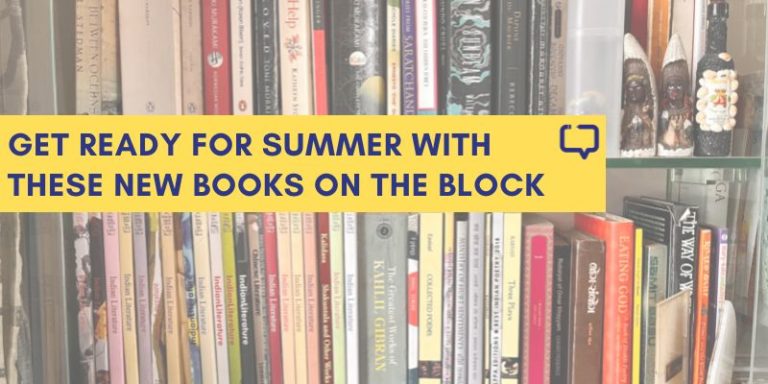Akshaya Ganesh reviews Perumal Murugan’s Pyre, originally written in Tamil as Pookuzhi and translated into English by Aniruddhan Vasudevan (Published by Penguin India, 2017)
Since my teen days, I have heard much about Perumal Murugan and wanted to read one of his books. But for some reason, I never picked it up until recently. When Pookuzhi by Perumal Murugan landed in my hands, I knew I was in for an emotional rollercoaster.
Having yearned for stories that lay bare society’s hypocrisy, holding a mirror to our flawed systems and igniting the spark of change, I was all set to face the harsh realities that the book would put in front of me. Without delay, I plunged into the world of Pookuzhi with a thirst for truth and a desperate hope for a flicker of change.
We encourage you to buy books from a local bookstore. If that is not possible, please use the links on the page and support us. Thank you.
“You will have respect as long as you stay with the crowd. You will lose it as soon as you start going your way.”
Pookuzhi by Perumal Murugan
I couldn’t agree enough with this statement. Many of us would relate to it in a way when we faced backlash from society every time we went against it. How often have we been humiliated because we took a different turn rather than staying with the crowd?
The book hits you hard with the truth. As Perumal Murugan rightly points out, respect is a fickle flame that can be quickly extinguished with rebellion and self-expression.
With every step you take, you don’t just break the rigid walls of societal expectations but also lose a part of your dignity. Is conformity the measure of dignity, or is true worth found in forging a path towards living a life of our terms and desires? This question lingered in my mind long after I completed the book.
Not just a love story!
Saroja, raised by her father and brother, was raised in a town. Kumaresan, on the other hand, was raised by a single mother in a village and moved to Saroja’s town to work in a soda shop. Saroja and Kumaresan, two souls from different castes, were intertwined by a socially unacceptable love. The young couple, blinded by love, elope to Kumaresan’s village, believing they will accept them. Reality bites them in the form of his mother’s scorns and villagers’ cold stares.
The rigid caste system in the village leads to Saroja facing constant abuse and isolation. Amidst all the harassment, Saroja’s only solace was her beloved, whom she clung to, hoping that he would protect her from the vicious curses of his villagers. Kumaresan, however, remained silent, trusting that time would heal everything. He sets up a soda shop in the town. He leaves Saroja alone for two days, unaware of the evil plan by his mother and the village council – to silence Saroja forever by murder.
Overhearing this gruesome plot, Saroja flees into the night. Trapped in the bushes, she was consumed by fear and despair as the villages set it ablaze. Saroja hears the faint sound of Kumaresan’s bicycle as the flames inch closer. Will he arrive in time? Will they fight for a happily ever after transcending the shackles of caste?
Love’s Pyre by Perumal Murugan
Pyre casts a long, distorted shadow of a dark world that most of us aren’t aware of. This is not a love story for the faint of heart. It plunges readers into the brutal reality of Tamil Nadu’s caste system, where love between Saroja and Kumaresan becomes a pyre, consuming not just their dreams but Saroja’s very existence. The author doesn’t shy away from the escalating violence and veiled discrimination of the caste system – it’s all laid bare.
Centuries together, India’s caste system has divided people into different groups. Each group has its own rules and regulations, which seem strange and obsolete in today’s World. Even though they don’t make sense anymore, the system and the caste labels themselves still exist in this big, democratic country.
Perumal Murugan’s powerful writing throws light on this complex issue. Told through the tragic love story of Saroja and Kumaresan, the narrative exposes the cruelty caused by rigid caste traditions. The writing is sharp, and it bleeds raw emotion. The narrative in some places might be difficult to read, but reality is always hard to digest.
Perumal Murugan, as I mentioned already, didn’t sugarcoat the harsh traditions. The narrative follows a tense pace, with each page tickling our empathy. There are constant bursts of violence and humiliation. Raw and unsettling, the ending will stay long after you turn the final page.
Amidst all the darkness, there are flickers of humanity. Small acts of compassion remind us that kindness and empathy remain in us despite the rigid societal norms. Was it enough? It is something we are left to ponder. What I liked most about Pyre is Saroja’s resilience throughout the book. Her character embodies a powerful source of strength even in horrific circumstances.
Despite facing unimaginable cruelty, she maintains a quiet dignity and determination, suggesting that her love for Kumaresan serves as an anchor for her fundamental will to survive. Her courage in the face of adversity and her unwavering love for Kumaresan, despite his flaws, served as a potent reminder that the fight for freedom and equality is an ongoing struggle.

The book isn’t a cautionary tale; I’d rather see it as a call to action, urging us to break apart the rigid traditions and prejudice and fight for a World devoid of discrimination. On a personal note, the book left me shaken, reminding me of the horror within us and our society. It haunts me with questions and a burning desire for change.
While Pyre might not be everyone’s cup of tea, reading about these brutal realities is essential. Originally written in Tamil as “Pookkuzhi,” this translated novel uses simple language to tell a painful story. Just be forewarned: the main character, a woman, endures terrible suffering. So, if you’re looking for a lighthearted read, this might not be it.
Pyre is not a comfortable read, but it is a necessary one. It serves as a reminder that progress can only be achieved when we shine a light on the darkest corners and have uncomfortable discussions. If you’re someone who yearns for stories that ignite change, then this book is a must-read.
Have you read this hard-hitting read that talks about the brutal realities? What do you think of it? Drop a comment below and let us know!

As part of our effort to compensate our writers better, we at Purple Pencil Project have launched the #PayTheWriter initiative, where readers can directly show support and appreciation for our wonderful team.
Scan or upload this image on your UPI app, and show them the love 😀























